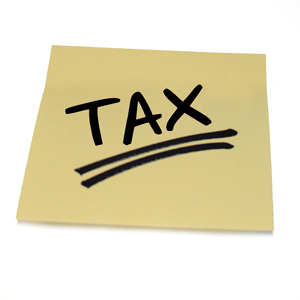The Government (HMRC) intends to modernise the tax system, with tax returns being replaced by digital tax accounts for millions of individuals and businesses. Each taxpayers’ details will be in one place, just like an online bank account, so they can register for new services, update their information and understand quickly what they need to pay — without ever having to complete a tax return again. By early 2016, five million small businesses and the first ten million individuals will have access to a secure, personalised digital tax account. By 2020, more than 50 million individuals and small businesses will have a secure, personalised digital tax account. The need for millions to complete a tax return will be gone and the tax system will be simplified for millions more.
 Taxpayers will get a real-time view of their tax affairs and see how their tax is calculated. They’ll also be able to check how much tax they owe or need to be repaid and see their options for paying securely. Those who pay more than one tax (such as corporation tax, VAT and Pay-As-You-Earn (PAYE)) will be able to take a single view of their total liabilities across all taxes. Those who pay their tax through PAYE will have their income tax, National Insurance contributions and pension position shown in their digital tax accounts, including any interest from banks and building societies.
Taxpayers will get a real-time view of their tax affairs and see how their tax is calculated. They’ll also be able to check how much tax they owe or need to be repaid and see their options for paying securely. Those who pay more than one tax (such as corporation tax, VAT and Pay-As-You-Earn (PAYE)) will be able to take a single view of their total liabilities across all taxes. Those who pay their tax through PAYE will have their income tax, National Insurance contributions and pension position shown in their digital tax accounts, including any interest from banks and building societies.
Taxpayers will simply be able to log-in to their own digital account to check and confirm that the details retained therein are complete and correct. For businesses, HMRC and Companies House will be streamlining the process to register a new company and sign up for a range of taxes by May 2017. This will remove the need for companies to provide the same information more than once.
By 2020, businesses will be able to manage their taxes together as part of their day-to-day running, rather than something to be done separately. Their accounting software will be able to feed data straight into their digital tax account, so most businesses will simply log-in to check their details with no need to send an annual return. The digital tax account will show PAYE taxpayers how much tax they will pay via their employer. Even those with complex tax affairs will be able to tell HMRC about additional income online and have it reflected in their digital tax account. Individuals and small businesses will have the option to ‘pay as you go’ to help manage their cash flow, so they won’t be faced with a one-off bill many months down the line. Instead of making a number of payments across different taxes, they will be able to make just one. It will feel like paying a single tax.
The new accounts will offer access to help and support for individuals and small businesses, increasingly tailored to their specific needs and circumstances — such as when someone approaches retirement, or when a business deals with VAT for the first time or takes on a new employee. HMRC will automatically target the right support to help taxpayers understand their overall tax position.
Information and guidance will be personalised and user-friendly, tailored by age, sector, size and location. These will build on the successful online services HMRC already operates through Twitter, YouTube, webinars and webchats. Taxpayers will be able to let agents manage their digital account on their behalf if they wish. Agents will have new and different opportunities to support the small business community and those who authorise an agent to deal with their tax affairs will see the same picture of their tax affairs online as their agent does.
Over time, digital accounts will offer access to a range of other government services. To begin with, individuals will be able to see how their National Insurance contributions affect their state pension, while small businesses will be able to access increasingly tailored support from across government to help their business grow, via a Single Business Service. With a digital tax account, individuals and small businesses will be in complete control of their tax affairs and have confidence that they have met their obligations. They won’t need to provide information that HMRC already holds, and they’ll be able to see and understand their tax liability. For those who deal with several taxes, it will be just like dealing with one — taking the cost, time and stress out of the process.
For many, the transition to digital accounts will be simple. But for those who have difficulty in going online or who need extra help, HMRC will continue to provide extra help and support. Of course, taxpayers will still be responsible for ensuring their tax bills are right and for telling HMRC about information that is not reported by other means. But digital tax accounts will make this much easier, quicker and simpler.
Sources: www.scottishwidows.co.uk; (Press release: 2015/03/16)
If this blog has raised any questions why don't we have a quick chat?

MD & Certified Financial Planner
A brief meeting might be of interest, especially if you’re unsure just how wealth management and financial planning could help you.
It would only require the investment of an hour or so of your time, and the coffee’s not bad either.
